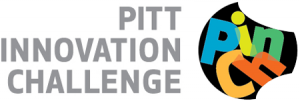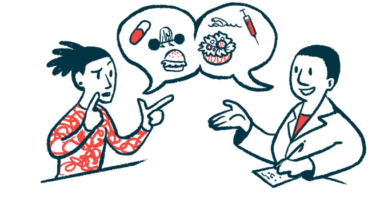Award-Winning Breathing Tablet-Based Software Tool Could Benefit CF Patients

 A project for a tablet-based software tool designed to help children suffering from lung diseases properly use nebulizers, which may be helpful to cystic fibrosis patients (CF), was recently awarded $100,000 at the Pitt Innovation Challenge (PInCh). The device was one of three projects to be awarded with the top prize to fund the development of breakthrough research projects.
A project for a tablet-based software tool designed to help children suffering from lung diseases properly use nebulizers, which may be helpful to cystic fibrosis patients (CF), was recently awarded $100,000 at the Pitt Innovation Challenge (PInCh). The device was one of three projects to be awarded with the top prize to fund the development of breakthrough research projects.
The Nebukin team, which is led by Timothy Corcoran from the Department of Medicine and Bioengineering, Pulmonary, Allergy and Critical Care Medicine of UPMC, has been dedicated to studying the use of a tablet-based software tool in order to assist children in the proper administration of nebulizers.
“The game also helps to keep the child entertained during the treatment and alleviates boredom and anxiety. It also provides physicians with a degree of control over dosing,” Corcoran said on an interview to Danielle Fox, from Pitt News, as he explained that the software works as a game in order to provide children with information about breathing patterns and proper drug deliver.
 Corcoran has been studying aerosol medications for more than 20 years, which has given him “some ideas about where the problems were with inhaled therapies and some insight on how to fix them.” The team will use the grant to invest in user-experience professionals to deepen the understanding of the usability of the product, as well as software designers to help produce a beta version of Nebukin.
Corcoran has been studying aerosol medications for more than 20 years, which has given him “some ideas about where the problems were with inhaled therapies and some insight on how to fix them.” The team will use the grant to invest in user-experience professionals to deepen the understanding of the usability of the product, as well as software designers to help produce a beta version of Nebukin.
In addition, the research team also said that the tool might be useful for children suffering from cystic fibrosis. “We first plan to bring our designers together with children with cystic fibrosis so that they can gain a clear understanding of the role inhaled therapies play in their life and understand their perspective. Our design will evolve from those interactions,” Corcoran said.
The team also included Jenna Date from the Human Computer Interaction Institute at Carnegie Mellon, who will be responsible for conducting research on the needs suffered by pediatric lung disease patients, as well as David Orenstein and Daniel Weiner, pediatric pulmonologists and cystic fibrosis experts from the Children’s Hospital of Pittsburgh.
This is second annual edition of the challenge in which more than 60 teams participated and about $400,000 was awarded in prizes to students and professors. The PInCh event was hosted by the Pitt’s Clinical and Translational Science Institute, the Office of the Provost and the Innovation Institute.
Each of the teams were asked to answer the question “From cell to community: How can we individualize solutions for better health(care)?” and three of them were granted $100,000 awards, while the other four were granted $25,000 grants. The prizes are designed to support the costs to advance the research projects from each group over the next 12 months. In addition, each winning group will also receive the help of a project manager.
[adrotate group=”1″]
“PInCh is a celebration of the pioneering and entrepreneurial spirit of some of the brightest, most enterprising teams of visionary thinkers in and around the Pittsburgh region,” said Steven E. Reis, the CTSI director and associate vice chancellor for clinical research, Health Sciences, in a news release.
The challenge was issued last September, and from the initial 60 video entries sent to the first round of the contest, 20 teams were selected for a written entry round. The University then chose 10 finalist research projects to be presented at a showcase. In addition to Nebukin, Nanoketo and ACL were also granted top awards.







